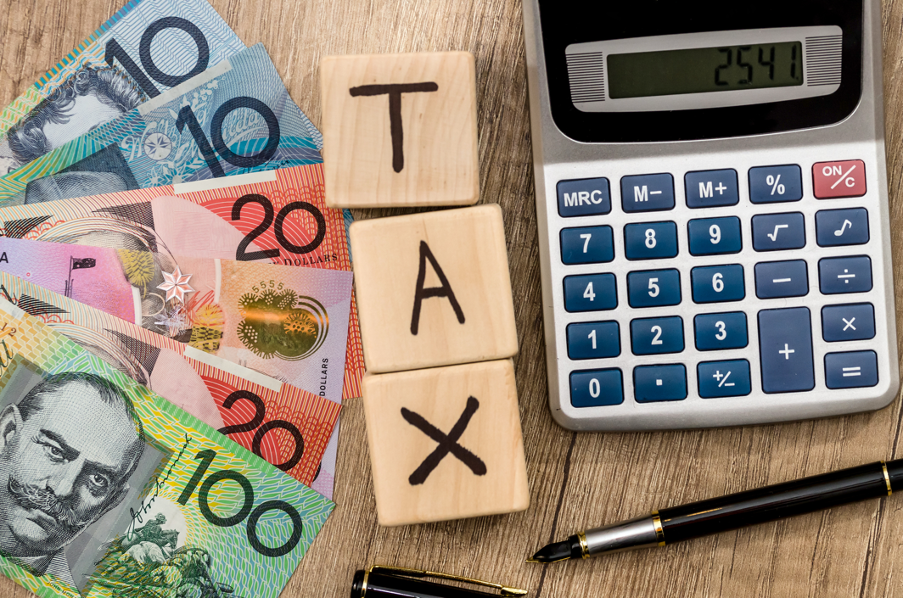What are the tax implications of working overseas as an Australian expat?
By John Versace | 26/06/2023

Summary
- The tax landscape for expats can be complex.
- You need to understand your tax residency status before making any financial moves, which can be complicated.
- Remaining a resident of Australia for tax purposes means you will be taxed in Australia on worldwide income and assets.
- Treatment of assets can vary dramatically for non-residents, and there can be implications for your Australian property, shares, cash/term deposits and superannuation.
- Advice from experts who understand both jurisdictions is a must.
You’ve moved overseas for the lifestyle you want, and it’s important to ensure you can live it. So, it’s essential to be aware of the potential tax implications and make informed decisions to protect and grow your wealth for the long term.
Will you remain an Australian resident for tax purposes?
The first step is determining whether you remain (or will remain) a resident for Australian taxation purposes. This can be complicated and dependent on various factors. If you meet any of the criteria for the following statutory tests, you will be classed as a tax resident.
The resides test looks at several factors through a reasonably complex lens, including your physical presence in the country, business or employment ties, location of assets, and social and living arrangements.
The domicile test takes into account what the law considers to be your permanent home to determine your place of abode.
The 183-day test looks at whether you have spent more than 183 days in Australia in a 12-month period and whether your usual abode could be said to be outside Australia.
The Commonwealth superannuation test applies to some Australian Government employees. It may determine you are a resident if you are contributing to a Commonwealth or Public Sector Superannuation Scheme (CSS or PSSS), regardless of where you reside.
What does remaining an Australian resident for tax purposes mean?
If you remain a resident for tax purposes, you will be taxed in Australia on your worldwide income and assets, regardless of where you reside. This means you must lodge an Australian return and may be required to pay tax on your income in Australia, even if you have been taxed on the same income in another jurisdiction. It’s important to note that Australia has tax treaties with many other countries that can limit or reduce double taxation, including the US and many European and Asian nations.
What does it mean if I am a non-resident for tax purposes?
Although it does mean you won’t need to pay tax on worldwide income and assets, there may be higher tax rates imposed on certain income you earn or assets you hold on our shores.
As a non-resident, you are not entitled to the tax-free threshold, and the lowest tax rate is 32.5%. In addition, you aren’t entitled to the 50% capital gains tax (CGT) discount for any assessable capital gains accumulated while you’re a non-resident.
Treatment of assets held in Australia can vary dramatically for non-residents, depending on the asset class. It’s essential to understand this taxation landscape when making investment decisions:
Property
- While there will be no deemed disposal of existing property when you cease being an Australian tax resident, your Australian property will continue to be assessed for income and CGT purposes.
- For the period in which you remain a non-resident, you will be taxed at 32.5%–45% on income earned in Australia. If your property is negatively geared, any losses can carry forward and be used to offset income when you’re back in Australia.
- When you sell your property, any gains accumulated whilst you’re a non-resident are taxed at non-resident rates, and you will not be eligible for the 50% discount on capital gains. Even if you sell your property when you are a resident once again, any gains deemed to have been accumulated during your period of non-residency will receive this treatment, which typically ends up being a capital gains rate on the total gain of 32.5%–45%.
The family home is exempt from capital gains on eventual sale for Australian tax residents. Even after moving out and renting the property, there is typically the option to treat the former family home as your primary residence for up to 6 years and therefore avoid CGT (note, you can only claim one property as your primary residence at a time).
However, following rule changes effective 30 June 2020, if a former Australian family home is sold and the owner is a non-resident for Australian taxes at the time of sale, an exemption for capital gains may no longer be available.
An exemption would not be applicable, even for the period of ownership where the owner was an Australian tax resident.
For example, Jane purchases a property as her primary residence in 2000. She moves to San Francisco in 2018 and rents her property. She sells her property in October 2020 while she remains a non-resident for Australian tax purposes. Jane is not eligible for a CGT exemption for her former home, and she will be assessable for full capital gains from the original purchase in 2000. If Jane were to wait to sell the property when she is an Australian tax resident again, then standard primary residence capital gains exemption would be applicable.
Shares
- A deemed disposal occurs when you cease being an Australian resident for tax purposes. This means you are considered to have sold the shares for their current value, even if you don’t actually sell them. As a result, CGT would apply. You can elect to have your shares treated as Australian taxable property, removing the deemed disposal requirement. However, the shares would continue to be assessed for Australian CGT at non-resident rates.
- Where deemed disposal has occurred, any shares purchased after becoming a non-resident and gains accrued while you remain so are not assessable for Australian CGT.
- Typically, the cost base for any shares you purchased while not a resident is the value on the day you resume your Australian tax residency.
- For fully franked shares, you do not receive your franking credit but don’t pay withholding tax on dividends.
- For unfranked shares, you pay 15% tax where Australia has a tax treaty, or 30% tax where Australia does not have a tax treaty.
Interest/income from cash/term deposits
- Will be taxed at a 10% withholdings tax for non-residents
Super
- You can continue to contribute to super while overseas. Pre-tax contributions can be an effective way of reducing taxes payable on Australian-sourced income while you’re a non-resident (e.g. where you have rental property income in Australia).
- Self-Managed Super Funds (SMSF) are popular in Australia. However, expats must be extremely careful. SMSF laws require ‘central management and control’ to be in Australia, and at least 50% of ‘active members’ (contributors) need to be Australian residents. Failure to comply with either of these tests can lead to the fund being deemed ‘non-complying’, which would alter the tax rate from 15% to 45%.
If you’re working overseas, you will likely be a tax resident of another country. Many countries will assess you based on your worldwide income and assets, including your Australian assets. Therefore, it’s essential to understand how your Australian assets will be assessed overseas. For instance, the US will harshly tax any personally held ETFs domiciled outside the US.
How can you navigate tax implications as an Australian expat?
The tax landscape for Australian expats can quickly become complex. A wrong move can be costly, and the financial decisions you make today can have long-term implications. That’s why it is critical you work with professionals, such as a tax agent and financial planner, who understand both jurisdictions. The right team can help you make the best decisions to live your best life today and into the future.
If you are an Australian expat or are planning to become one, talk to the Apt Wealth Partner’s Expat Financial Planning team. Our specialist team has experience planning finances for Australians living across the globe, from the US and UK to the Middle East and Asia. Get in touch today on 1800 801 277 (or +61 3 8779 5254) or info@aptwealth.com.au.
General Advice warning
The information provided in this blog does not constitute financial product advice or a recommendation to purchase a particular product. The information is of a general nature only and does not take into account your individual objectives, financial situation or needs. It should not be used, relied upon, or treated as a substitute for specific professional advice. Apt Wealth Partners Pty Ltd is not a registered Tax Agent. You should consider your individual situation and seek tax advice from a registered tax agent before making any decision based on the content of this document. Apt Wealth Partners (AFSL and ACL 436121 ABN 49 159 583 847) recommends that you obtain professional advice before making any decision in relation to your particular requirements or circumstances.









